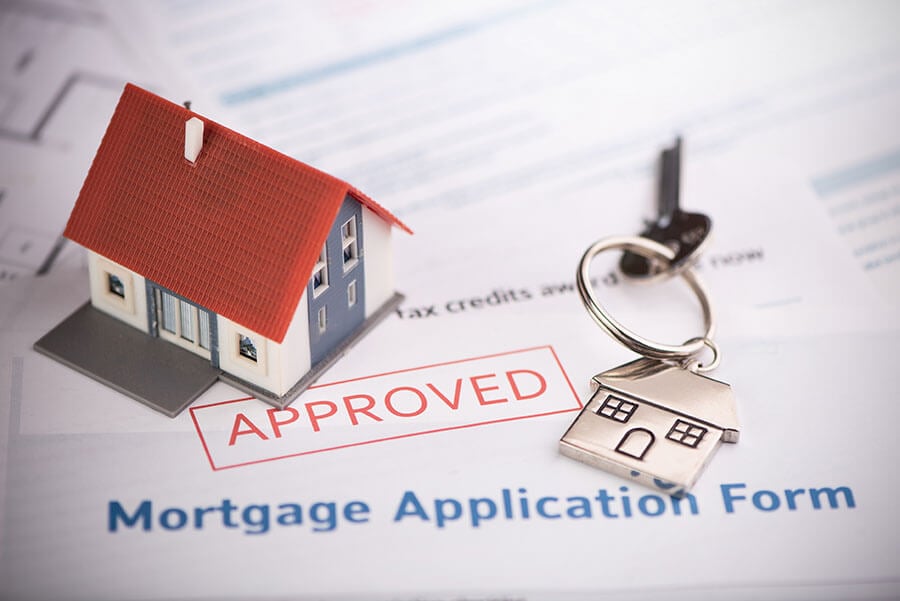Conventional Mortgage Loans: How They Contrast to Other Finance Options
Wiki Article
The Necessary Variables to Take Into Consideration When Finding In Between Fixed-Rate and Variable-rate Mortgage Financings
When examining home mortgage choices, borrowers encounter a critical choice in between fixed-rate and adjustable-rate car loans, each providing potential mistakes and distinct advantages. Secret factors to consider such as interest rate security, predictability in monthly repayments, and the effects of possible rate modifications can substantially impact long-lasting financial wellness.Interest Price Security
When picking a mortgage, comprehending rate of interest price stability is important for notified decision-making. Rate of interest prices can considerably impact the overall price of a home loan, and acknowledging the nature of these rates is important for borrowers.On the various other hand, variable-rate mortgages (ARMs) start with reduced initial prices that might change periodically based upon market conditions. While this can lead to lower repayments originally, it likewise presents uncertainty, as consumers might encounter enhanced settlements if rate of interest increase. For those considering an ARM, it is vital to examine the likelihood of price adjustments, the capacity for settlement rises, and the length of the initial fixed-rate duration.
Inevitably, the option between fixed-rate and adjustable-rate mortgages hinges on individual risk tolerance and monetary situations. Recognizing passion rate stability helps debtors make informed decisions that align with their long-term economic objectives.
Regular Monthly Settlement Predictability
While customers usually prioritize rates of interest security, the predictability of monthly repayments is just as crucial in the home loan selection procedure (Conventional mortgage loans). Monthly settlement predictability plays an important duty in budgeting and financial preparation, as it directly impacts a homeowner's capital and general economic healthFixed-rate home mortgages provide a regular month-to-month repayment throughout the life of the lending, allowing customers to anticipate and prepare their expenditures efficiently. This security can be specifically beneficial for novice homebuyers or those on a set income, as it eliminates the unpredictability connected with changing settlements.
On the other hand, variable-rate mortgages (ARMs) usually include lower first repayments that can transform over time, bring about possible irregularity in month-to-month obligations. While initially appealing, this unpredictability can complicate financial planning, particularly if consumers do not account for future rate changes.
Possible Rate Changes
In the world of variable-rate mortgages (ARMs), potential rate modifications represent a substantial aspect that customers need to very carefully take into consideration. Unlike fixed-rate home loans, where the passion rate stays the same for the life of the financing, ARMs are characterized by fluctuating rate of interest that are tied to market indices. This irregularity can lead to substantial modifications in month-to-month settlements, affecting the consumer's economic preparation and budgeting.Usually, ARMs have a preliminary read more fixed-rate period during which the rate of interest is steady. After this period, nevertheless, the rate changes at predetermined intervals-- generally every year. Customers must understand the margin and index used to calculate these changes, as they straight affect future passion prices. Furthermore, ARMs often consist of caps that restrict just how a lot the rates of interest can raise at each adjustment and over the life of the car loan, which can this link supply some level of security against extreme rate hikes.
Comprehending these possible adjustments is important for customers, as they straight influence long-term payment obligations. Analyzing individual financial circumstances and run the risk of resistance is crucial when choosing whether an ARM straightens with one's monetary goals.
Finance Term Considerations
Loan term considerations play an essential duty in the decision-making process for customers picking in between fixed-rate and adjustable-rate home loans. The length of the financing term dramatically impacts regular monthly payments, rate of interest rates, and overall financial planning.
Eventually, debtors have to examine their individual scenarios, financial goals, and market problems when considering the implications of loan term selections within each home mortgage kind.

Overall Expense of Borrowing
Fixed-rate mortgages provide foreseeable month-to-month settlements, as the passion price stays continuous throughout the financing term. This predictability can lead to lower overall expenses, resource especially in a steady or decreasing interest price environment.Alternatively, variable-rate mortgages (ARMs) generally begin with lower first rates, resulting in lowered upfront prices. Nonetheless, these rates can enhance after a preliminary duration, causing potentially greater lasting costs. Customers have to consider the regularity and level of price modifications, as well as the general funding duration, to properly examine the financial implications.
Moreover, the total expense of loaning encompasses not only rates of interest however likewise costs and other linked expenses, such as shutting expenses and insurance coverage (Conventional mortgage loans). When reviewing mortgage choices, debtors should conduct an extensive price analysis over the life of the car loan. By doing so, they can make an enlightened decision that aligns with their financial objectives and take the chance of tolerance
Conclusion
Rate of interest rate stability and monthly repayment predictability are critical for reliable budgeting, while the possibility for price modifications in ARMs presents financial unpredictability. Furthermore, the expected period of homeownership and the overall cost of borrowing, consisting of interest rates and linked fees, have to align with private monetary scenarios and run the risk of resistance.Secret considerations such as interest rate security, predictability in monthly payments, and the implications of possible rate adjustments can substantially influence long-lasting financial wellness. Rate of interest rates can considerably affect the general price of a mortgage, and acknowledging the nature of these prices is vital for debtors. Unlike fixed-rate mortgages, where the interest rate stays unmodified for the life of the car loan, ARMs are defined by varying interest prices that are tied to market indices. Furthermore, ARMs often include caps that limit exactly how a lot the rate of interest price can increase at each adjustment and over the life of the funding, which can supply some level of protection versus drastic rate hikes.
Rate of interest price stability and monthly settlement predictability are vital for effective budgeting, while the possibility for price changes in ARMs presents economic uncertainty.
Report this wiki page